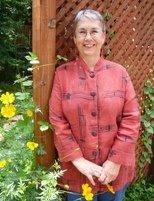 |
| Drawing by Jefferson Vincent (Jake) LeForce |
Today I’m thinking back to A., writer-in-residence in the 1990s. I enrolled in his class in poetic forms. Each Monday night we brought forth a freshly manufactured sonnet, villanelle, or triolet. The best part of a class with A. was his odd and clumsy entry, his abrupt recitation of a favorite poem. Didn’t he love the Irish and the Welsh – Yeats and Dylan Thomas? He was pretty keen on Roethke. He knew that Lawrence poem about the snake by heart.
But he was not in love with us, his needy budding poets. Early on, he told us he’d moved beyond poetry. Mr. A. was working on a novel about gambling and the people who can’t live without it. Nevertheless, it was in his contract to teach one poetry class, thus these traditional forms, scansion, training the ear to the foot -- iambic, trochaic, spondaic.
Reciprocally, there was not much to love about Mr. A. When I saw him running in his sweats around the campus sidewalks in the snow he looked like Rocky played by Steve Buscemi. Like he’d lost something, he was trudging along eye on the old clock tower in case that slipped-away-thing reappeared on the hour, or off the hour.
Reciprocally, there was not much to love about Mr. A. When I saw him running in his sweats around the campus sidewalks in the snow he looked like Rocky played by Steve Buscemi. Like he’d lost something, he was trudging along eye on the old clock tower in case that slipped-away-thing reappeared on the hour, or off the hour.
At the single one-on-one conference he allowed, A. scoffed at my attempt to write a ghazel. Leave the Persian forms to the Persians or to the wise old Bly, I thought, or he said, or I’m thinking now.
Eye contact did not come easy to this visiting writer, but I asked him in an intimate voice, “Why, really, did you scrap poetry?” “It got too easy”, he said, puffing himself up slightly. “I could write a poem at the drop of a hat.” Or, I thought, at the roll of the dice or the spin of a wheel, with the speed of a horse. Bingo, he could apparently make a poem fit into the squares of a card of random numbers. Amazing.
Later he told the class that he wanted to write a money-making novel. I saw it some years ago on a remainder table in The Strand. There certainly was no book of mine there on any table, sale or otherwise. So never mind a pay-back silly scoffing.
I must have learned from Professor A.: how form works and doesn’t work, what one cannot live without, what to love enough to know by heart.
My other teacher, Time, taught me not to cheat or bluff or dope the thing. For most of us, the novice or the longtime practiced, making a poem get out the gate then cross the finish line with just the right amount of sweat, no more, no less, is hardly ever easy. And the rewards are hard to calculate. You just walk back up to the window and put your earnings on a another horse that strikes your fancy.
